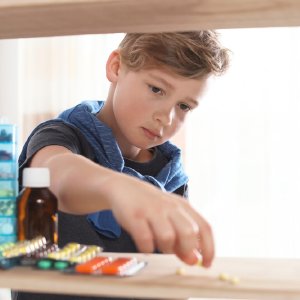What Happens to People Who Use Marijuana in Their Adolescent Years?

Common knowledge tells us that drugs are harmful, that they are substances we should not experiment with. “Drugs are bad,” is the over-simplified yet general statement. We have a universal common sense understanding that using drugs is dangerous, damaging to both our physical and mental health and our overall well being. But some additional information regarding marijuana is vital to know when it comes to younger people.
One important piece of data is that drug experimentation can be more damaging for young people than adults. Young people tend to be more impulsive, more likely to take risks when under the influence, etc. Furthermore, drug use has a potent effect on the body of a young person, creating great danger for developing an addiction.
Marijuana and Perceived Risk
Our society edges closer and closer to one which accepts marijuana as something “okay” to experiment with. This has led more people to use marijuana, and to a reduction in perceived risk of marijuana among young adults. As marijuana is legalized, young adults and adolescents begin to view marijuana as “safe.”
According to a National Institute on Drug Abuse article written for a teen audience, “Fewer teens now believe using marijuana is harmful. This belief is contributing to higher rates of abuse of these drugs. However, the science shows us otherwise. People who smoke a lot of pot risk injuring their lungs with the chemicals found in the smoke, and may also experience depression and anxiety. New research has found smoking marijuana heavily in your teen years and continuing into adulthood can actually lower your IQ!”
Conceptualizing marijuana as “safe” is hazardous ground to be walking on. If young people continue to see marijuana consumption as a safe thing to do, more young people will participate in marijuana use. And as marijuana continues to be legalized, barriers to entry in marijuana use will be gradually broken down. All of this leads to more marijuana use among youngsters, something which bodes very poorly for their futures.
What Happens When People Become Regular Marijuana Users at a Young Age?

The Centers for Disease Control and Prevention has done a fair amount of research into marijuana experimentation, examining the long-term effects of marijuana use on young adults. According to their study, 38 percent of young people have used marijuana at least once.
While a much smaller percentage of teens use marijuana frequently, for those who do make a habit of using the drug regularly, they risk long-term adverse effects which might not manifest until they are much older. Furthermore, frequent marijuana use has also been linked to school dropouts and an overall reduction in educational attainment.
I will not lay claim to a definitive involvement of the brain in addiction or substance abuse. Addiction science and neurology cannot really commingle, as addiction is far more complicated than anything which can be covered by brain science. In fact, there are adverse effects of addiction that are entirely spiritual, psychological, and behavioral which do not rest within the realm of the brain. However, there is some indication that heavy marijuana use in one’s youth does hamper brain development. From a physiological standpoint this makes sense, as the chemical effects of marijuana once consumed into the lungs or stomach can be harmful to several bodily systems, including the young, developing brain.
The evidence of this is in young adults who are now trying to “make it” after having spent much of their adolescence getting high. According to the CDC, almost across the boards such individuals complain of the following:
- Difficulty in thinking and solving problems.
- Trouble with memory and learning new things.
- Impaired coordination and a general difficulty in full motor function.
- Having a hard time focusing or giving something one’s full attention.
Studying adults who used marijuana frequently as adolescents is a relatively new area of research. It remains to be seen what other types of long-term effects might have been created by heavy marijuana use in one’s youth.
Further Research from the U.S. Department of Health and Human Services
The CDC is not the only organization that is putting out a warning regarding marijuana use. There is an excellent quote from the U.S. Department of Health and Human Services that sheds a concerning light on marijuana:
“Most people agree that marijuana use hurts adolescents more than adults. However, anyone who uses marijuana may suffer from negative health effects, such as testicular cancer, heart attacks, respiratory disease, a weakened immune system, pregnancy complications, and low birthweight. In addition to physical health effects, marijuana use also is linked with cognitive problems; low academic achievement and other educational outcomes; impaired social functioning; and mental health disorders, including depression and anxiety.”
There certainly are harmful effects to marijuana use, and while the consensus states that risk levels are more prominent for younger people, simply growing up into adulthood does not grant one a “free pass” to marijuana use.
Educating Young People on Marijuana

One of the main reasons why young people turn to marijuana experimentation is because they are peer pressured into doing so. And one of the main reasons why they submit to peer pressure is because they do not know about the risks that are attendant with marijuana use. They simply have not been educated or informed on this subject.
And that’s not too surprising. Schools don’t teach drug education, and not all parents bother to have conversations about drugs with their kids.
That has to change. If we want to raise kids to abstain from drugs, particularly to abstain from drugs which are increasing in popularity in the U.S., we must educate them about the dangers and risks of marijuana use. We can’t just tell them not to use marijuana. We have to explain to them why they would not want to experiment with marijuana. Therein lies the key in raising a generation which steers clear of marijuana experimentation.
Sources:
- https://teens.drugabuse.gov/blog/post/perception-risk-fewer-teens-believe-marijuana-harmful
- https://www.cdc.gov/marijuana/factsheets/teens.htm
- https://www.hhs.gov/ash/oah/adolescent-development/substance-use/marijuana/risks/index.html
Reviewed by Claire Pinelli, ICAADC, CCS, LADC, RAS, MCAP


